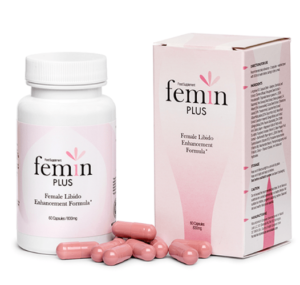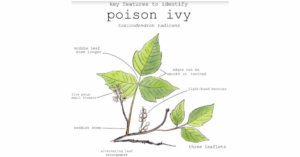Did you know that something as simple as pumpkin seeds could play a role in supporting hormonal health, particularly in boosting progesterone levels? While this might sound surprising, recent studies and health research have shown that pumpkin seeds contain nutrients and compounds that may encourage natural progesterone production—a key hormone for both men and women.
Whether you’re looking to balance your hormones naturally or simply want to add more nutritious foods to your diet, understanding how pumpkin seeds could help increase progesterone might just be the answer. Let’s dive into the science behind pumpkin seeds and their potential role in supporting hormonal health.
Table of Contents
What Are Pumpkin Seeds and Why Do They Matter?
Pepitas, or pumpkin seeds, are small, oval-shaped seeds found inside pumpkins. Beyond being a delicious snack, pumpkin seeds are packed with essential nutrients like magnesium, zinc, and healthy fats, all of which can play a significant role in overall health. So, why do pumpkin seeds matter when it comes to hormones?
They’re much more than just a snack! The nutrient profile of pumpkin seeds makes them a unique and powerful food source that supports different bodily functions, including hormone regulation. For those looking to improve their natural hormone balance, pumpkin seeds may provide some valuable benefits.
The Importance of Progesterone in the Body
Progesterone is a hormone that plays a vital role in several physiological processes, particularly in reproductive health. In women, it helps regulate menstrual cycles, supports pregnancy, and maintains mood stability. In men, while levels are naturally lower, progesterone also contributes to maintaining a balanced hormonal environment.
Low levels of progesterone are linked to various issues like irregular menstrual cycles, mood swings, and, in severe cases, infertility. This is where pumpkin seeds come in—they offer natural support for maintaining and potentially boosting progesterone levels.
Nutrients in Pumpkin Seeds That Promote Progesterone Production
So, what exactly in pumpkin seeds makes them supportive of progesterone? The answer lies in a combination of nutrients:
- Zinc
- Magnesium
- Healthy fats
- Antioxidants
Each of these nutrients plays a role in hormonal balance, and when combined, they can potentially support natural progesterone production in the body.
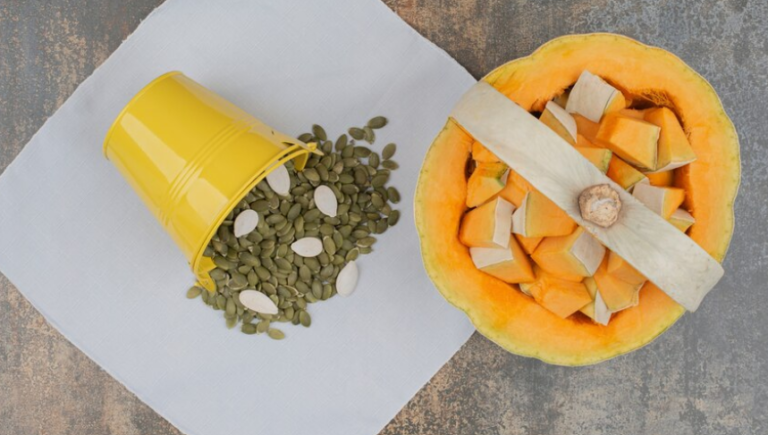
How Zinc in Pumpkin Seeds Affects Progesterone
Zinc is essential for hormone production and regulation, including progesterone. In fact, research has shown that low levels of zinc can lead to reduced progesterone. Pumpkin seeds are an excellent source of zinc, providing around 7 mg per 100 grams, which meets about 50% of the daily requirement for most adults.
When zinc levels are adequate, the body is better equipped to produce and regulate progesterone naturally. This mineral also helps in creating proteins that act as transporters for progesterone, making it more accessible for the body to use where needed.
The Role of Magnesium in Pumpkin Seeds for Hormonal Balance
Magnesium is often overlooked in hormone discussions, but it is crucial for balancing progesterone levels. It aids in the regulation of the pituitary gland, which signals the production of hormones like progesterone. Studies show that magnesium deficiency can hinder progesterone production, leading to an imbalance.
Pumpkin seeds provide about 150 mg of magnesium per ounce, helping to support progesterone by aiding in stress regulation—a major factor affecting hormone levels.
Essential Fats in Pumpkin Seeds for Hormone Production
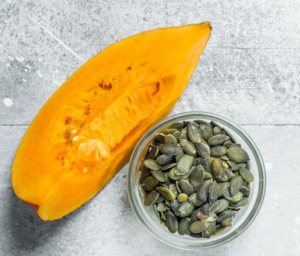
Hormones are made from cholesterol and fats, which means healthy fats are necessary for progesterone production. Pumpkin seeds contain essential fatty acids like omega-3s, which are known to support hormone production and balance.
Healthy fats found in pumpkin seeds also help reduce inflammation in the body. This is particularly beneficial, as chronic inflammation can interfere with the body’s natural hormone production and function.
Antioxidants in Pumpkin Seeds for Reducing Hormonal Stress
Antioxidants help reduce oxidative stress, which can interfere with hormone production. As a result of the antioxidants present in pumpkin seeds, such as vitamin E and carotenoids, cells are protected from damage. This support helps the body maintain a stable environment for hormone production, including progesterone.
A balanced intake of antioxidants can reduce the burden on the endocrine system, allowing it to function more effectively and naturally produce the hormones it needs.
Pumpkin Seeds and the Body’s Endocrine System
The endocrine system is responsible for regulating hormone production in the body. When this system is under stress or lacking nutrients, it can struggle to produce adequate levels of hormones like progesterone. Pumpkin seeds offer a unique nutrient profile that helps support endocrine health and natural hormone production.
How to Incorporate Pumpkin Seeds into Your Diet
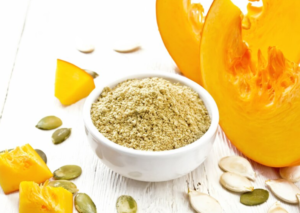
Adding pumpkin seeds to your diet is easy! Here are some simple ideas:
- Snack on raw or roasted pumpkin seeds as a healthy alternative to chips.
- Add pumpkin seeds to your salads for extra crunch and nutrients.
- Blend pumpkin seeds into smoothies for an added boost of protein, magnesium, and zinc.
- Use pumpkin seed oil in dressings for a unique, nutty flavor.
Incorporating these seeds regularly can help you maintain a balanced diet that supports hormone health.
Are Pumpkin Seeds Enough for Progesterone Support?
While pumpkin seeds are rich in nutrients beneficial for hormone health, they are part of a broader picture of maintaining a balanced hormone system. Consistent intake of pumpkin seeds can support natural progesterone levels, but a balanced diet, lifestyle, and reducing stress are also critical for achieving optimal hormone health.
What Science Says About Pumpkin Seeds and Progesterone Production?
Current research supports the idea that nutrients in pumpkin seeds can contribute to hormone balance, though more direct studies are needed to confirm their role in progesterone production. Here’s a look at the findings on some specific components:
Zinc’s Role in Hormone Health: Studies show that zinc is integral for maintaining healthy reproductive hormone levels in both men and women. Low levels of zinc are linked with hormone imbalances and have been shown to negatively impact the function of reproductive glands.
Magnesium’s Effect on Hormone Production: Magnesium has been studied for its ability to lower stress levels, which directly impacts hormone production. By reducing cortisol (the stress hormone), magnesium indirectly supports progesterone levels, as high cortisol can suppress reproductive hormones.
This emerging science highlights pumpkin seeds as a promising food for natural hormone balance, particularly when consumed as part of a balanced diet.
The Connection between Diet and Hormone Health
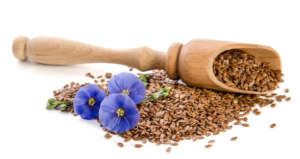
Diet is a cornerstone of hormone health. Foods like pumpkin seeds provide essential nutrients that help regulate the endocrine system, leading to improved hormone function. However, a single food can’t act as a magic bullet. It’s important to combine pumpkin seeds with other hormone-supporting foods like:
- Leafy greens for added magnesium and fiber
- Nuts and seeds like flaxseeds, chia, and almonds for omega-3 fatty acids
- Avocados for healthy fats and vitamin E
- Whole grains to support steady blood sugar levels
Together with a healthy lifestyle—managing stress, exercising, and ensuring adequate sleep—these foods can enhance the body’s ability to produce and balance hormones naturally.
Final Tips for Using Pumpkin Seeds to Support Progesterone Naturally
To make the most of pumpkin seeds for hormone health:
Opt for Raw, Unsalted Pumpkin Seeds: Raw seeds retain more nutrients than roasted, and choosing unsalted options prevents excess sodium intake.
Aim for Variety: Mix pumpkin seeds with other nutrient-dense seeds to create a well-rounded snack rich in vitamins and minerals.
Stay Consistent: Regular consumption is key. Consider adding pumpkin seeds to your meal plan or preparing pumpkin seed snacks in advance to make sure they’re readily available.
Additional Insights on Hormonal Health and Pumpkin Seeds
Embracing pumpkin seeds as part of your diet not only supports progesterone but also provides a whole host of additional benefits that extend beyond hormone health. Here’s why pumpkin seeds are worth considering as a staple:
Supports Heart Health: The healthy fats and antioxidants in pumpkin seeds are well-known for promoting cardiovascular health. Omega-3 fatty acids, in particular, help lower “bad” LDL cholesterol levels, reducing the risk of heart disease.
Enhances Bone Density: With magnesium and phosphorus, pumpkin seeds contribute to stronger bones. These minerals work synergistically with other nutrients to improve bone density, which is particularly important as we age.
Boosts Immune System: Rich in zinc, pumpkin seeds also play a critical role in supporting immune health. Zinc helps the body’s defense system by supporting cell function, which can be especially helpful during the cold and flu seasons.
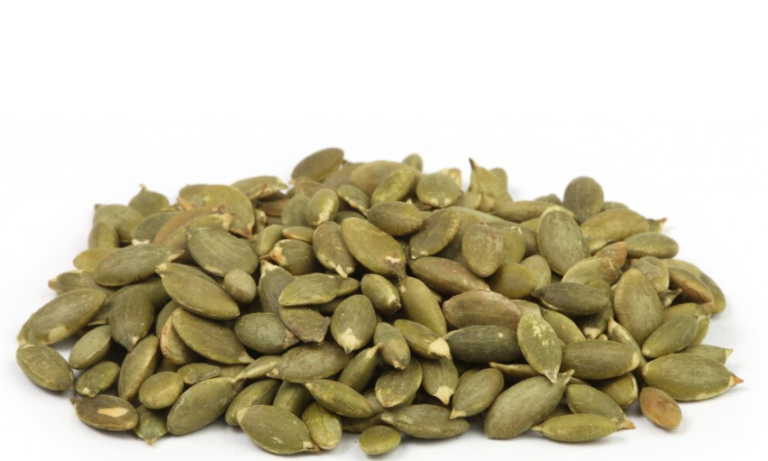
Incorporating pumpkin seeds into a balanced diet can thus benefit both specific hormone-related issues and your overall health. Remember, optimal health often requires a variety of nutrient-dense foods that complement each other to support the body’s complex functions.
Conclusion
Pumpkin seeds may be small, but they pack a powerful punch when it comes to supporting hormone health and, in particular, the body’s natural progesterone production. With a combination of zinc, magnesium, healthy fats, and antioxidants, these seeds provide key nutrients that can help maintain balanced hormone levels.
While pumpkin seeds alone aren’t a cure for hormone imbalance, they offer a safe, natural addition to a hormone-supporting diet. By consistently incorporating them into your meals, along with other hormone-friendly foods and lifestyle habits, you can support your body’s natural hormone production and enjoy the many health benefits that come with balanced progesterone levels.
By viewing food as a tool for wellness, we open the door to natural approaches to health—simple, effective, and easy to implement. So, the next time you reach for a snack, consider a handful of pumpkin seeds. It could be one small step toward better hormonal health and overall well-being.
Pumpkin seeds are an incredible, natural source of nutrients that support hormone health, including the production of progesterone. While they’re not a cure-all, their blend of zinc, magnesium, healthy fats, and antioxidants makes them a powerful addition to a hormone-supporting diet. Whether you’re snacking on them or adding them to your meals, pumpkin seeds can offer a natural way to help your body maintain a balanced hormonal environment.
Final Wrap-Up: Embracing Pumpkin Seeds for Long-Term Health
Adding pumpkin seeds to your daily routine is a small yet impactful step toward improving hormonal health naturally. With nutrients that support not just progesterone but also heart, immune, and bone health, pumpkin seeds prove themselves to be a versatile and essential part of a wellness-focused diet.
Whether you’re adding a sprinkle of seeds to a salad, blending them into smoothies, or enjoying them as a crunchy snack, this simple dietary addition can provide a foundation for better hormonal balance. Remember, while pumpkin seeds are beneficial, the most sustainable results come from a balanced lifestyle. Eating a variety of whole foods, exercising, managing stress, and getting quality sleep will further amplify the positive effects on hormone production and overall wellness.
In the end, pumpkin seeds serve as a great example of how natural foods can support our body’s needs in numerous ways. So, the next time you see a handful of these little green gems, you’ll know they’re more than just a tasty treat—they’re a small but mighty ally in your journey toward a healthier, balanced life.
Frequently Asked Questions (FAQ’s)
Yes, pumpkin seeds are rich in nutrients like zinc and magnesium that support the body’s natural ability to produce and balance progesterone levels.
Generally, 1-2 tablespoons of pumpkin seeds daily can provide the necessary nutrients for hormone support.
Pumpkin seeds are generally safe to consume, though eating too much can cause digestive issues due to high fiber content.
Yes, due to their hormone-balancing nutrients, pumpkin seeds can offer mild relief from some menopause symptoms, though more research is needed.
Absolutely! Men benefit from balanced progesterone levels, which help regulate testosterone and overall hormonal health.
No, pumpkin seeds are not a replacement for hormone therapy but can be a helpful dietary addition for those looking to support hormone health naturally.
Anytime! They can be eaten as a snack or added to meals throughout the day.
Results vary, but consistent intake for a few weeks is typically needed to notice benefits.
Both are beneficial, though raw pumpkin seeds retain more nutrients.
Yes, pumpkin seed oil also contains beneficial nutrients that support progesterone, though eating the seeds provides more fiber and protein.
Yes, combining pumpkin seeds with foods like flaxseeds, avocados, and leafy greens enhances hormone support by creating a balanced, nutrient-rich diet.
Raw pumpkin seeds can be stored in an airtight container in a cool, dark place for up to six months. Keep them refrigerated or frozen for longer freshness.
Both forms are beneficial, but raw pumpkin seeds retain slightly more nutrients. Roasting them lightly is fine if you prefer a crunchier texture.
Yes, pumpkin seeds provide essential nutrients like magnesium and zinc, which can be helpful during pregnancy and breastfeeding. In all cases, however, it is always advisable to speak with a healthcare professional before taking any medication.
In addition to pumpkin seeds, flaxseeds and sesame seeds are also beneficial for hormone health due to their fiber and fatty acid content.
Yes! Progesterone has a calming effect on the brain, helping to stabilize mood and reduce anxiety. Because pumpkin seeds support progesterone production, they can indirectly contribute to mood stability when combined with other mood-boosting practices.
Pumpkin seeds primarily impact progesterone levels rather than estrogen. However, maintaining balanced progesterone can indirectly support estrogen balance since these hormones work in tandem to support overall reproductive health.
Pumpkin seeds can be consumed at any time. However, many people enjoy eating them as an afternoon snack to help maintain steady energy levels, or they add them to breakfast for a nutrient-dense start to the day.
Yes, pumpkin seeds are safe to consume daily for most people. One to two tablespoons a day can provide an ample amount of nutrients to support hormone health. However, it’s best to eat them as part of a balanced diet, not as the sole source of nutrition.
Absolutely! The nutrients in pumpkin seeds, particularly magnesium and zinc, can help support teenagers’ hormonal health as they go through puberty. Pumpkin seeds make an excellent snack or addition to meals for young people.

10 Proven Benefits of Bananas for Health and Well-being
Bananas are known for their natural sweetness, ease of peeling and rich nutrition. This makes them one of the most commonly consumed fruits in the world. Though bananas originated in Southeast Asia, they are now
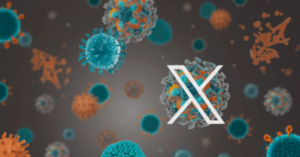
Disease X: The Next Pandemic?
Emerging infectious diseases pose one of the greatest threats to human health and global stability. One of them, “Disease X” has intrigued scientists and WHO, as it represents the potential for an unknown disease to

The Remarkable Benefits of Eating Acorn Squash in Winter
Acorn squash has all the qualities that make it special. Winter calls for warmth, comfort, and nutrition, and acorn squash provides all of these. This vegetable is not just delicious but also has a lot

Omega-3 Fatty Acids
Omega-3 fatty acids play a very important role in the nutrients needed to maintain overall health. As people are getting to know about it, its popularity is increasing day-by-day. These fats play a very important
